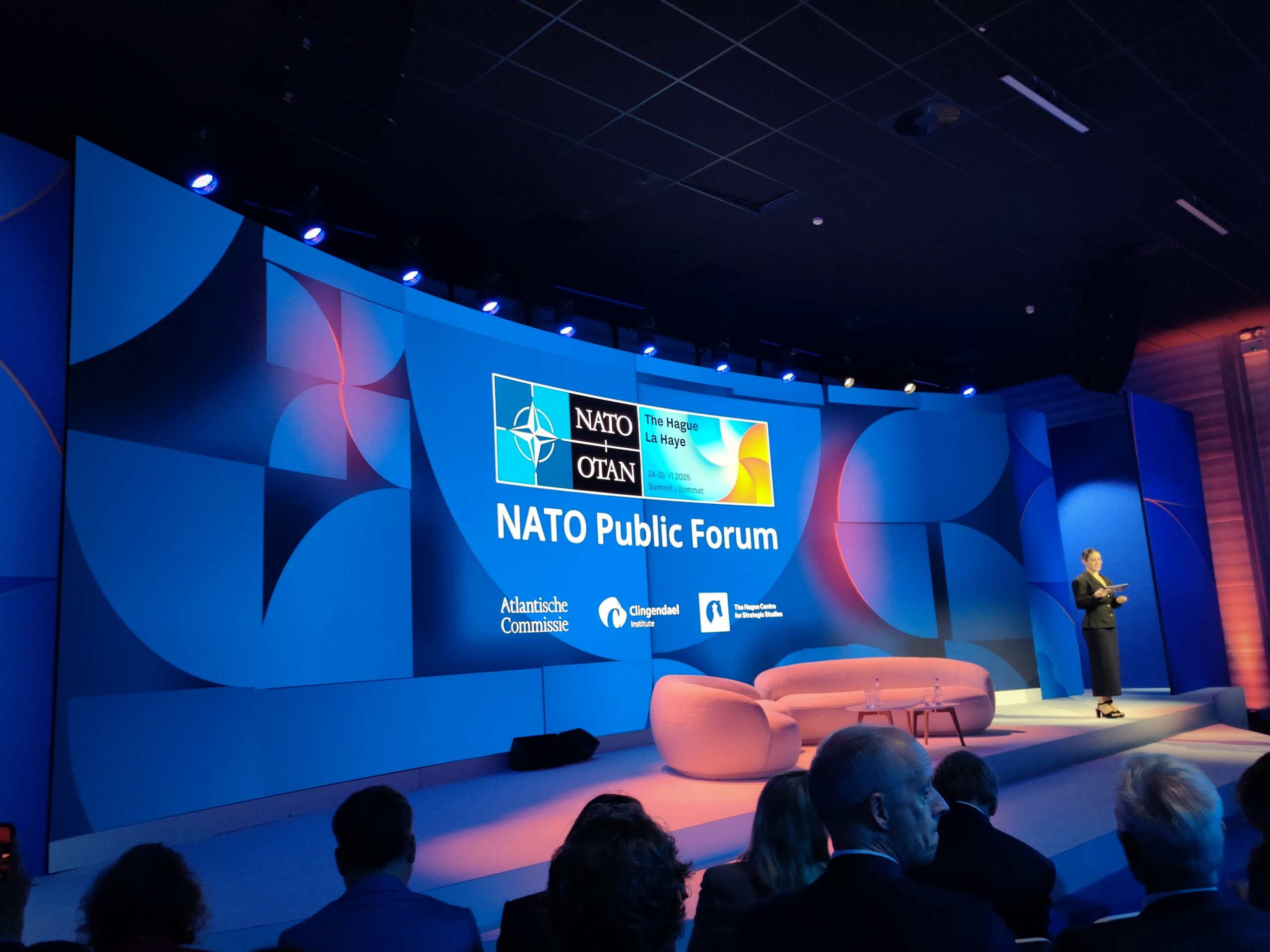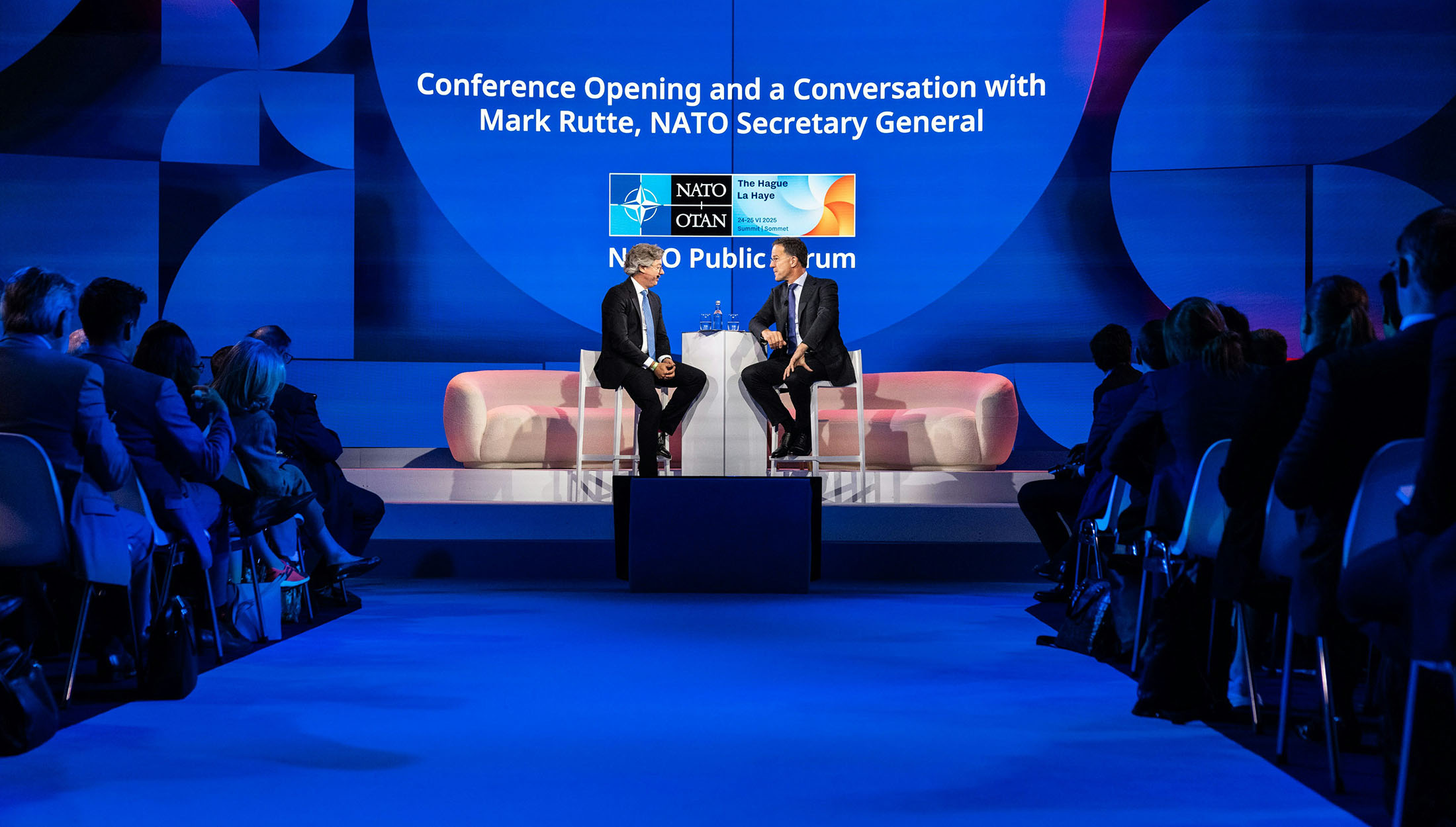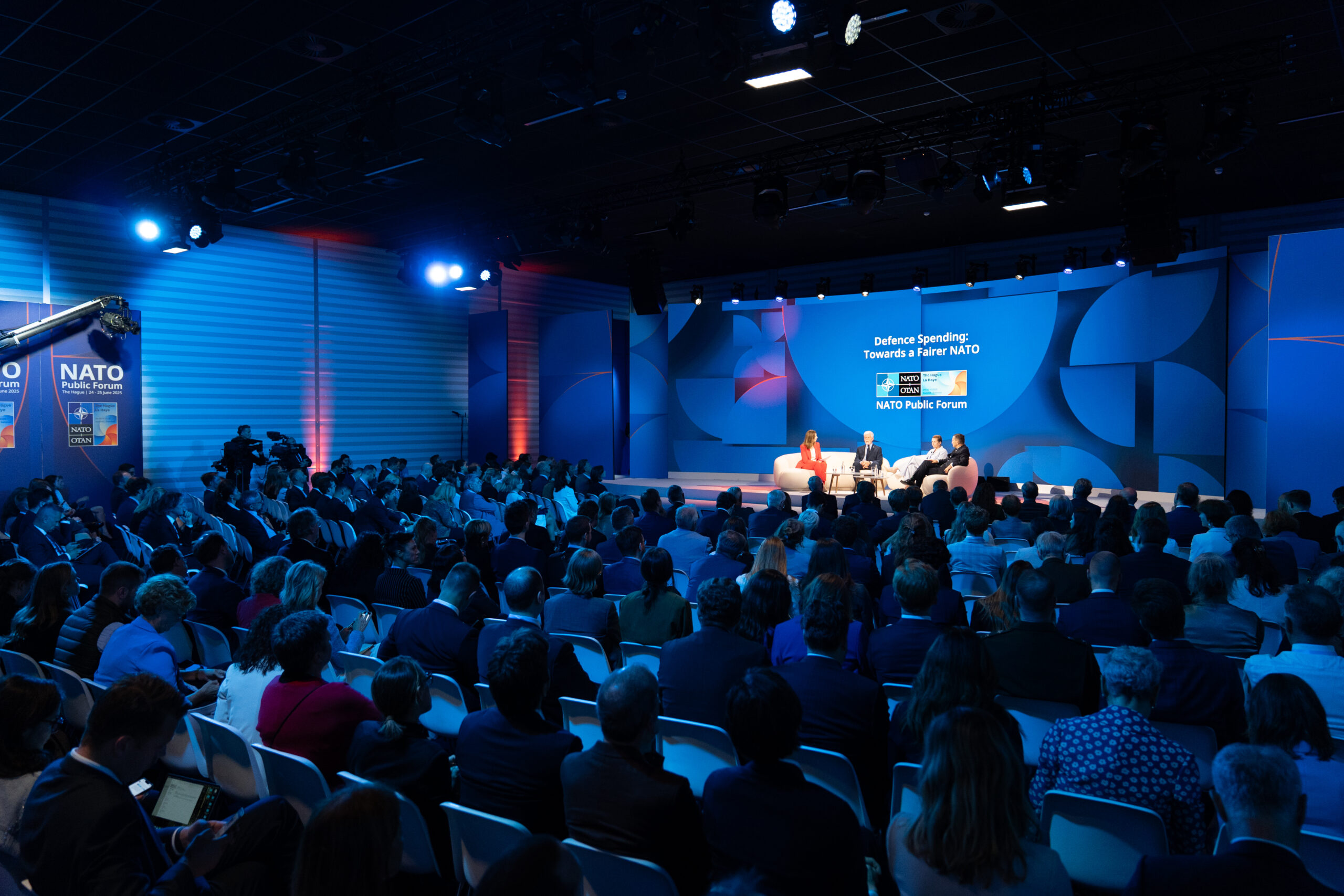
On the sidelines of this year’s NATO Summit, held on 24–25 June 2025 in The Hague, the President of the Youth Section of the Euro-Atlantic Council of Slovenia (YATA Slovenia), Matic Kosirnik, and the Vice-President of the Euro-Atlantic Council of Slovenia, Brin Najžer, PhD, took part in the NATO Public Forum – the Alliance’s flagship outreach event held in parallel with the meeting of Heads of State and Government. The forum gathered around 500 participants, including experts, policymakers, diplomats, academics, and civil society representatives.
The Forum was opened by NATO Secretary General Mark Rutte, who, in a conversation with Benedikt Franke (Munich Security Conference), highlighted the key security challenges facing the Alliance: Russia’s rapid rearmament, the growing alignment of authoritarian powers (Russia, China, Iran, and North Korea), and the urgent need to strengthen collective defence readiness. Rutte underscored the historic importance of the new investment pledge by which NATO Allies are expected to allocate 5% of GDP to defence spending, with 3.5% earmarked for core defence expenditures:
“Germany has announced it will reach 3.5% in core defence spending already by 2029. Sweden and Norway are pursuing similar targets. Poland, Estonia, Latvia, Lithuania, and Finland are already above or near the threshold. Why is this important? Because Russia is rearming at an alarming pace. If we want to avoid a situation where our security and defence capabilities are at risk in three to five years, we must act now.”
The discussions featured numerous high-level speakers, including heads of state, ministers of defence and foreign affairs, ambassadors, researchers, and security experts. Key topics included:
-
- Strengthening partnerships in the Indo-Pacific region;
- The impact of authoritarian actors on global security;
- The role of youth in shaping security policy and burden sharing;
- Translating defence pledges into actual military capabilities;
- Sustained support for Ukraine and pathways to peace;
- The use of artificial intelligence and advanced technologies in defence;
- Cyber resilience and countering hybrid threats.
The EACS representatives used the opportunity to engage in discussions with youth delegates from other countries and the YATA network, contributing to debates on the future of Euro-Atlantic security. Their participation in the Forum provided a valuable platform to strengthen the Slovenian youth voice in the international security arena.
On the margins of the event, the annual General Assembly of YATA International also took place, during which representatives of YATA national associations elected a new Executive Board. The new President of YATA International is Francisco Norbre, President of YATA Portugal.
Author: Matic Kosirnik



